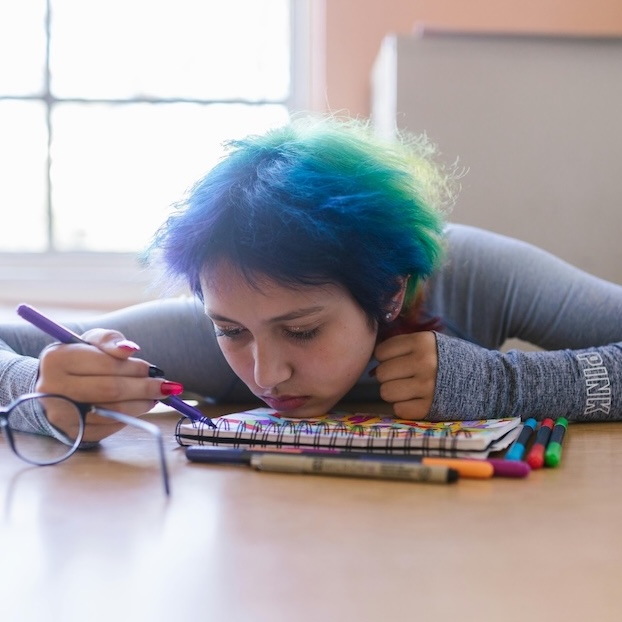Ever picked up your child from school only to be met with tears, moodiness, or even a full-on meltdown?
Many parents hear glowing reviews from teachers: “She’s a joy to have in class!” or “He’s so well-behaved!” Meanwhile, after school, you’re navigating tantrums, whining, or sudden withdrawal. This emotional whiplash has a name: after-school restraint collapse, and it’s more common than you might think.
What is after-school restraint collapse?
After-school restraint collapse is an emotional release. Children have to show self-control all day long, obey rules, listen to their teacher’s direction, sit quietly, and not disrupt the class. Understandably, they may have pent up emotional and physical energy that they need to release. Once the child gets to a safe place, they release the true emotions they’ve been holding all day long—a bubble of pent up energy bursts. Some kids become whiney or weepy, while others might scream or throw things. Older kids might act rude or disrespectful to you and others.
After school restraint collapse is a meltdown, not a tantrum. It’s important to understand that meltdowns differ from tantrums:
- Tantrum: a child’s reaction when something happens that they feel was out of their control. Often tantrums are caused when the child does not get what they want or is told “no.” During a tantrum, the child is distractble.
- Meltdown: the release of stored emotion, often caused by fatigue, overstimulation, fear, anxiety, or stress. During a meltdown, the child is not distractible. Comfort and a safe environment is the most important thing.
While after-school restraint collapse can affect all kids, it is most common among sensitive and intense kids, and kids struggling with learning or socialization. Factors like fatigue, hunger, overstimulation, and sickness can also lead to after-school restraint collapse. And, it's especially common during big transitions—like back-to-school.
How to help your kid
First, and most importantly: don’t take it personally. The meltdown isn’t about you. It’s a sign that your child trusts you enough to show their full self.
Here are some ways to help:
- Create a “soft landing” after school: Instead of jumping into questions like “How was your day?” or “Do you have homework?” try a calm, pressure-free greeting. Offer a hug, a snack, and some time to decompress.
- Offer comfort: during a meltdown, your child is overwhelmed—not disobediant. Punishing or trying to reason with them in the moment usually backfires. Stay close, stay calm, and remind them that they’re safe.
- Build a decompression routine after school: Help your child identify a daily ritual that helps them recharge. For some, it might be kicking a soccer ball in the backyard. For others, it could be music, reading, or alone time in their room.
- Stay connected throughout the school day: Leave a sticky note in their lunchbox. Add a family photo to their backpack. These simple gestures remind your child they’re loved, even when you’re not together.
Preventing after-school restraint collapse
When your kid gets home, try to avoid talking about school or homework right away. Instead, opt for a light, stress-free greeting. Try to avoid question overload about their day. Your child likely needs a “brain break after school” so give them some time and space to decompress.
After school, many kids are hungry (even if they don’t say so). When your child gets home from school, offer water and a healthy snack like vegetables, fruit, or cheese. If your kid has an after school activity, try to ensure they’re having a healthy, nutritious snack beforehand. It’s important that your kid has the opportunity to rehydrate and replenish.
Staying connected to your child during the day can help as well. You can put a note in their lunchbox or folder or a picture of you and them in their backpack. These gestures will help remind your kid that you are always there for them.
Snacks + quiet time: the after-school secret?
Here’s a simple formula that often works:
- Healthy snack: Think fruit, cheese sticks, yogurt, or nuts. Even if they say they’re not hungry, offer it anyway.
- A nice, big cup or glass of water
- Quiet time: Give them space to process their day.
Don’t take it personally!
It can be very upsetting and stressful to watch your child have a meltdown, especially when you feel like you’ve done your best to prevent it. Just remember, you did not cause the restraint collapse, and it is normal for your child to release their emotions after a long day.
By approaching these moments with empathy and structure, you’re helping your child build the tools they need to cope with big feelings in a big world.





